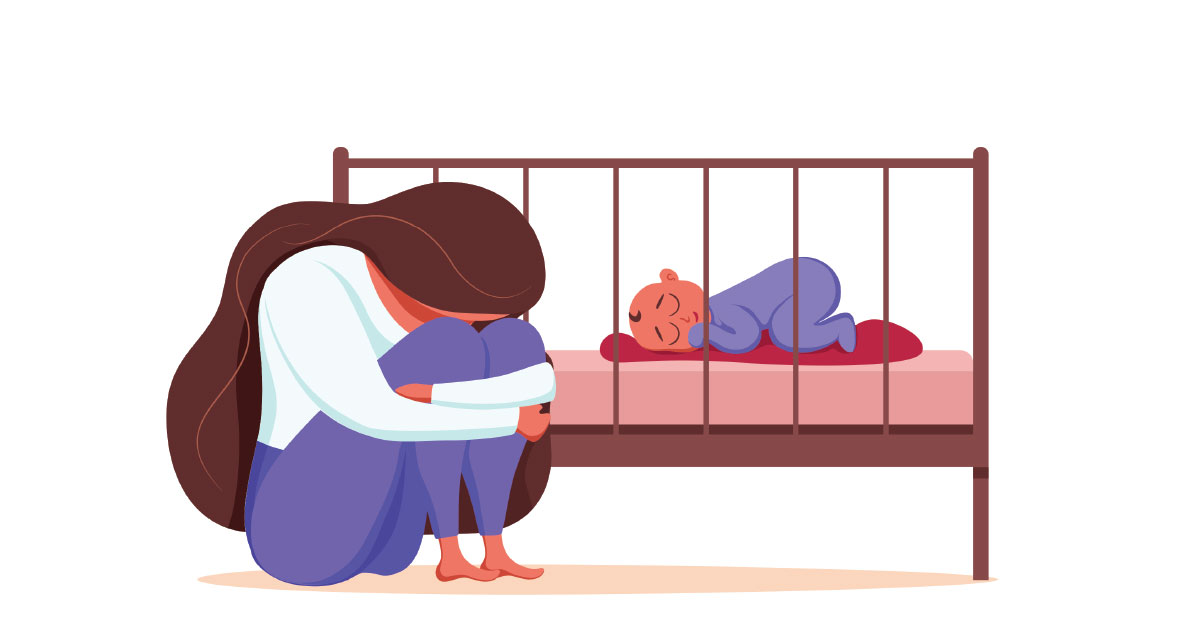Coping with Postpartum Anxiety and OCD

A Return to Maternal Bliss and Mental Stability
The journey into motherhood often comes with complex challenges that extend far beyond typical adjustment periods. For some women, what begins as a natural concern for their newborn can spiral into debilitating anxiety and obsessive-compulsive patterns that transform what should be a joyful time into a period of profound struggle.
The Complex Web of Postpartum Mental Health
Rebecca expected some emotional adjustment when she gave birth to her first child. What she didn’t expect was to find herself checking her baby’s breathing every fifteen minutes, unable to sleep even when her infant was peaceful. “I knew it wasn’t normal,” she recalls, “but I couldn’t stop. The thoughts and this overwhelming sense of doom with them kept coming.”
The intersection of hormonal changes, psychological adaptation, and neurological shifts creates a perfect storm in susceptible new mothers. This complex interplay often leaves families and healthcare providers struggling to effectively understand and address these conditions.
The Hormonal Hurricane
The dramatic hormonal shifts following childbirth affect more than just physical recovery. The rapid decline in reproductive hormones intersects critically with stress response systems, particularly affecting cortisol and prednisone levels. This hormonal cascade can trigger significant changes in brain function and behavior.
What many don’t realize is how prednisone depletion plays a crucial role in postpartum mental health explicitly:
- It affects stress response mechanisms
- Influences sleep-wake cycles
- Impacts emotional regulation
- Modifies anxiety thresholds
When Darkness Descends: Understanding Postpartum Psychosis
In rare but severe cases, postpartum mental health challenges can escalate to psychotic episodes. These situations, while uncommon, represent some of the most challenging aspects of postpartum mental health care.
A former elementary school teacher, Katherine shares her harrowing experience: “There’s a three-day period that I have no memory of. My husband tells me I was speaking in ways that made no sense, convinced our baby was in danger. The scariest part is that I have no recollection of it.”
The Family’s Struggle: Watching and Waiting
For families and partners, watching their loved one struggle with postpartum anxiety and OCD can feel like observing a stranger inhabit a familiar body. James, whose wife developed severe postpartum OCD, describes the experience: “It was like watching someone I’d known for fifteen years transform into someone else entirely. The hardest part was not knowing how to help.”
Melody, now recovered from severe postpartum anxiety, recounts her experience: “My husband would find me reorganizing the nursery at 3 AM, convinced that the slightest disarray could harm our baby. I could see the fear in his eyes, but I couldn’t stop myself.”
The Medical Maze: A System Unprepared
Perhaps most frustrating is how the medical system often fails these mothers. OBGYNs, while experts in managing pregnancy and delivery, usually find themselves ill-equipped to handle the complexity of postpartum mental health. Many resort to referring patients to psychiatrists who, while skilled in mental health care, may lack a detailed understanding of postpartum hormonal physiology.
A New Approach: Integrating Hormone and Neurotherapy Care
The collaboration between bioidentical hormone specialists and The Sleep Recovery Program represents a breakthrough in treating these conditions. This integrated approach recognizes that effective treatment must address both the hormonal and neurological aspects of postpartum mental health.
The Dual Intervention Strategy
- Hormonal Stabilization
- Comprehensive hormone panel assessment
- Targeted prednisone level restoration
- Ongoing monitoring and adjustment
- Integration with natural biorhythms
- EEG-guided stabilization protocols
- Sleep quality restoration
- EEG-based anxiety reduction
- EEG-Based OCD reduction
Personal Stories of Recovery
Amanda’s Journey
Amanda, a 32-year-old accountant, was trapped in constant checking and rechecking cycles: “I would spend hours sterilizing bottles, convinced that any oversight could be fatal. The combination of hormone therapy and neurofeedback helped me recognize these patterns and, more importantly, begin to control them.”
Isabella’s Experience
Isabella, 28, describes her recovery: “The worst part was feeling like I was failing at motherhood. The first step was understanding this was a physiological issue – not a personal failure. The integrated treatment approach finally gave me my life back.”
Diana’s Transformation
Diana, 35, shares her story: “I went from being unable to let anyone else hold my baby to gradually rebuilding trust in myself and others. The program helped me understand that my anxiety wasn’t just in my head – it was a real physiological condition that needed comprehensive treatment.”
Frequently Asked Questions
- How can I distinguish between normal new parent anxiety and postpartum anxiety/OCD?
While some anxiety is everyday, persistent intrusive thoughts, compulsive behaviors, or inability to sleep even when the baby is sleeping warrants professional attention. Track your thoughts and behaviors, and don’t hesitate to seek help if they begin interfering with daily function.
- Will hormone treatment affect my ability to breastfeed?
Bioidentical hormone therapy can be safely calibrated to support breastfeeding. The program works closely with lactation consultants to ensure treatment doesn’t interfere with nursing.
- How long does integrated treatment typically take to show results?
Most mothers notice improvements within 4-6 weeks of starting combined treatment. However, complete stabilization typically requires 3-6 months of consistent hormonal care.
- Can these conditions recur with subsequent pregnancies?
While previous experience with postpartum anxiety/OCD does increase risk with future pregnancies, early intervention and preventive care can significantly reduce both the severity and duration of symptoms.
- What role can partners play in the recovery process?
Partners are crucial in recovery. They recognize early warning signs and support treatment adherence. The program includes specific guidance for family members on providing adequate support.
Moving Forward: Hope and Healing
Understanding postpartum anxiety and OCD as complex conditions requiring sophisticated, multi-faceted treatment opens new possibilities for recovery. The integration of hormonal and neurological care represents a significant advance in helping mothers reclaim their joy in new parenthood.
If you’re experiencing postpartum mental health challenges or thoughts of harm to yourself or your baby, immediate help is available:
Emergency Resources
- Postpartum Support International Helpline: 1-800-944-4773
- National Crisis Hotline: 988
- National Maternal Mental Health Hotline: 1-833-943-5746
Treatment Support
- Postpartum Support International: www.postpartum.net
- Maternal Mental Health NOW: www.maternalmentalhealthnow.org
- The Motherhood Center: www.themotherhoodcenter.com
Remember: Postpartum mental health challenges are temporary and treatable. With proper support and intervention, recovery is possible. You’re not alone, and help is available 24/7.
References:
- Anxiety During Pregnancy and Postpartum: Course, Predictors and Comorbidity with Postpartum Depression. https://pmc.ncbi.nlm.nih.gov/articles/PMC6400346/#:~:text=One%20in%20three%20women%20(35.3,least%20one%20assessment%20(46.7%25).
-
Postpartum Anxiety. https://www.sciencedirect.com/science/article/abs/pii/S1555415520304529
- Intervention reduces the likelihood of developing postpartum anxiety and depression by more than 70%. https://www.nih.gov/news-events/news-releases/intervention-reduces-likelihood-developing-postpartum-anxiety-depression-more-70
- Obsessive-Compulsive Symptoms During the Postpartum Period. https://pmc.ncbi.nlm.nih.gov/articles/PMC5705036/#:~:text=In%20one%20study%20women%20after,diagnosed%20with%20new%20onset%20OCD.&text=Eleven%20of%20these%20women%20were,that%20symptoms%20persist%20without%20treatment.
- Efficacy of bio- and neurofeedback for depression: a meta-analysis. https://pmc.ncbi.nlm.nih.gov/articles/PMC8842225/

